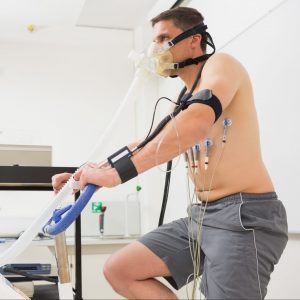Copyright © 2025 Open Medicine Foundation. All Rights Reserved.
The purpose of this project is to develop a clinical intervention enabling the study of people with ME/CFS, and to evaluate changes in miRNAs in response to this clinical intervention.
Study Hypothesis and Description
Studying microRNAs might help to bridge the conceptual gap between genetic predisposition and environmental factors causing ME/CFS or exacerbating specific symptoms. Equally important, the design of a portable clinical intervention will allow for the investigation of severely ill persons with ME/CFS, especially the ones that are housebound.
We designed a clinical intervention, safely producing post-exertional malaise (PEM), a hallmark symptom of ME/CFS. We hypothesized that a standardized stress test inducing PEM will reveal a more specific disease signature associated with ME/CFS symptoms. In that context, we investigated the role of circulating microRNAs, which are small non-coding RNA molecules that can be detected in the blood as well as in other biological fluids.
Objectives

OMF is a non-profit 501(c)(3) organization
(EIN# 26-4712664). All donations are tax-deductible to the extent allowed by law.



Open Medicine Foundation®
29302 Laro Drive, Agoura Hills, CA 91301 USA
Phone: 650-242-8669
info@omf.ngo
Copyright © 2025 Open Medicine Foundation. All Rights Reserved.
What are the advantages of giving from your Donor Advised Fund (DAF)?
How do I make a donation through my DAF?
Just click on the DAF widget below. It is simple and convenient to find your fund among the over 900 funds in our system.
Still can’t find your fund?
Gifting of Stock
Broker: Schwab
DTC #: 0164
Account #: 47083887
Account Registered as:
Open Medicine Foundation
29302 Laro Drive
Agoura Hills, CA 91301
Please speak to your personal tax advisor and then email or call OMF at 650-242-8669 to notify us of your donation or with any questions.